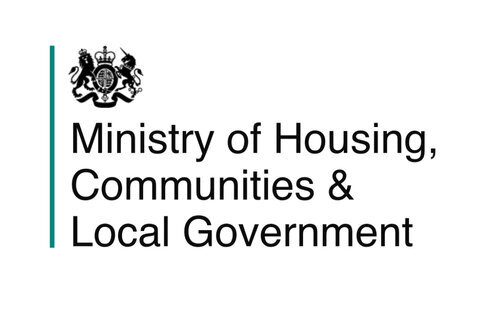Net Zero Implementation Pathways: Refurbishment
Following our guidance document on Net Zero Implement Pathways: New Development, we are pleased to publish this further guidance for Towns on how to implement net zero objectives through refurbishment.
The guidance document includes an overview of net zero in refurbishment, with key examples from Towns as well as business case tips and links to other useful resources.
Net Zero Implementation Pathways: New Developments
Globally, approximately 38% of energy related greenhouse gas (GHG) emissions are attributed to the building industry, with 28% deriving from building operation and 10% from the materials used in their construction and maintenance. To achieve net zero emissions by 2050 globally and in the UK, this decade must be spent at least halving emissions by 2030 from business as usual. These reductions must be applied across the entire building systems value chain, and taking a whole carbon lifecycle approach.
We are introducing these Net Zero Implementation Pathway guidance documents, to help Towns consider the pathway to implementation (including monitoring and evaluation) that lead to the best outcome from a net zero perspective. They intend to help you understand what you need to be thinking about at each stage of the lifecycle, who you need to engage, and what best practice and standards look like.
This document, the first in the series, sets out some guidance to ensure that towns in the UK are building and maintaining new developments in an environmentally and socially just way, not only to reduce emissions and build resilience to the worsening effects of climate change, but to boost local economies and create thriving, healthy communities.
Commercial Models and Attracting Investment
This paper provides guidance on considerations for Towns on the commercial structure of a project for which they have received a Towns Fund allocation. It provides this information in the context of understanding the structure and content of a Business Case.
Drawing on experience of running HM Treasury’s Better Business Case (BBC) training for circa 80 regeneration officers from the 101 Towns involved in the Towns Fund programme, and for members of the central DLUHC team, including the common questions raised, this guidance specifically considers the commercial case in parallel with the use of private / alternate financing.
Introducing the Protect Duty
Earlier this year, a government consultation took place that would introduce a Protect Duty; a piece of legislation that would place greater responsibility on owners and operators of Publicly Accessible Locations (PALs) - formerly known as Crowded Places and Spaces - to improve the protection of the public from terror attacks and criminal activity.
This two-page note provides details of what the Protect Duty is, and how it may impact Towns.
Monitoring and Evaluation: Towns Fund M&E Strategy
This document details DLUHC's approach to the monitoring and evaluation of the Towns Fund (which encompasses both the Town Deals and the Future High Streets Fund) and is intended to inform the public and stakeholders of the rationale behind the evaluation and the eventual outputs it will produce.
The aim of this document is to set out a strategy that provides a set of activities, methodologies and evaluation approaches that can help us better understand what works and why, thereby supporting the implementation future local growth and regeneration interventions.
Published 2 December 2021
Moving from OBC to FBC
This guidance document sets provides an overview of the fundamental considerations for Towns as you move from OBC to FBC.
Although we recognise Towns will be at different stages of the business case process (for example, shovel-ready projects are likely to be at FBC stage), for the purpose of this document we will focus on the transition between OBC stage to FBC stage.
We have produced this guidance in accordance with Green Book Guidance and in relation to the TFDP Business Case Template (optional).
Match Funding Guidance
Towns have successfully submitted their Town Investment Plans and have prepared, or are currently preparing, Business Cases for their interventions. As part of the preparation of these Business Cases, Towns need to consider all the sources of funding and how these sources will be used to deliver their interventions.
This short note sets out guidance on match funding, and more widely co-funding, for Towns as part of the production of Business Cases for the projects that were allocated Towns Fund funding. While it is not an exhaustive or fully comprehensive note, it aims to support the development of the Business Cases and decision making of Towns.
It should be noted that a degree of judgement will still need to be applied by Towns on a case-by-case basis when explaining how match funding has been achieved. We have included some examples at the end of this guidance.
An Introduction to 20-minute Neighbourhoods
This short learning burst provides an introduction to 20 minute neighbourhoods, giving a brief history of the concept and outlining how the Covid-19 pandemic has resulted in an increased desire to have local services available. The presentation also provides some case study examples and key considerations for implementing a 20 minute neighbourhood. A copy of the presentation slides is also available for download.
Using Offsite to deliver Town Regeneration
Description
This recorded webinar outlines how Offsite can help delivery assurances for quality asset delivery, faster and more efficient Town Regeneration. It provides guidance on how to meet Construction Playbook targets for 25% construction projects to be delivered using MMC, Carbon Net Zero Targets and ensuring minimal disruption through MMC/offsite methodology.
About the speakers
Fareita Udoh’s work with Buildoffsite includes lobbying for mass adoption of MMC, managing the events programme, setting up collaborative partnerships and working groups. Recently she initiated an industry wide review of the Water Industry Mechanical Electrical Specification for Chemical Dosing Offsite Units through collaboration with Water Companies & Supply Chain facilitation. She was also responsible for delivering an Industry report for the step change required for greater adoption of MMC commissioned by the Built Environment Communications Group.
Nigel Fraser is a longstanding contributor to Buildoffsite, currently as an Industry Advisor. He has broad experience as both a construction client and an offsite and low carbon product developer. He has also played a significant role in the development of standards and the delivery of ground breaking reports such as Out of Thin Air building over Rail using Offsite. Nigel delivered “An Offsite Sector Response to the Government’s Construction Playbook” in December 2020 and runs a series of workshops on how to deliver offsite industry wide.
Lessons Learnt from Cohort 2
Description:
In this recorded session, a panel of experts discussed key findings and outcomes from their work reviewing the Town Investment Plans submitted by the Cohort 2 towns.
The session covered key lessons learnt, and will provide tips and recommendations for those towns currently preparing their TIPs.
About the Speakers:
The panel were all involved in reviewing Cohort 2 TIPs, and have extensive experience in their respective areas.
Margaret Kalaugher is highly skilled at bringing key people together to promote collaboration and secure informed and considered decisions on transport and regeneration schemes. Her effectiveness is built on strong client programme management, strategic and analytical thinking, problem solving, negotiating and influencing skills.
Ross Hayman leads on stakeholder engagement in the north of England for the Towns Fund Delivery Partner. He brings many years’ experience of stakeholder engagement, community relations and public consultation on major infrastructure projects and urban redevelopment, with particular expertise in the energy sector.
Shrikant Singhania is a Town Coordinator in the North region and has been offering support on the funding and financing sections as well as advice around project delivery. With a background in Public Services Real Estates & Assets Advisory, Shrikant has vast experience in advising local authorities on viable operational delivery structures and funding scenarios available for the project.
Rebecca Collings is a Town Coordinator in the South & West region. She brings a wealth of experience from her past roles in the Civil Service in drafting documents for Government purposes, as well as in setting up and delivering complex projects.
Developing the Business Case for Grant Funded Projects
Description
This recorded workshop drew out key principles that Towns should consider in developing Business Cases for grant funded projects, focusing on the Commercial and Management Cases.
About the speaker
Mark Jones (Nichols) has over 30 years of experience in planning and managing infrastructure projects, with a focus on developing commercial and management cases for major projects. Mark also authored the templates, proportionality and best practice guides for the TFDP Commercial and Management cases.
Tax Considerations
This document sets out—at a high level—some key prompts and considerations that Towns may wish to consider in determining how they constitute themselves in projects or take certain actions, with a focus on potential tax implications.
This document sets out—at a high level—some key prompts and considerations that Towns may wish to consider in determining how they constitute themselves in projects or take certain actions, with a focus on potential tax implications. This document is purely informative and does not constitute advice.
The following taxes and issues are discussed:
Activities conducted within the local authority
Activities conducted by Special Purpose Vehicles (SPVs)
Stamp Duty Land Tax (SDLT)
VAT in SPVs and local authorities
The document is set out with some key information relating to these four topics and questions that Towns should ask themselves and / or specialists. This is not an exhaustive list of topics or queries Towns need to take into consideration from a tax perspective, and if you have further questions, you should consult your local tax and finance teams.
Delivery and Procurement Methods
This short guidance evaluates both delivery and procurement methods against the needs of the Towns, setting out key considerations to consider when identifying the options for delivering their project.
This short guidance evaluates both delivery and procurement methods against the needs of the Towns, setting out key considerations to consider when identifying the options for delivering their project.
Towns Fund Risk Register Template
Risks are a fact of programme delivery, and they have wide-ranging causes, including political, economic, social, technical and operational. Risk management is the process of identifying, assessing and putting in place measures to control threats to project success. Risk registers should be at the heart of your approach to risk management. A risk register provides a framework for you to identify and gain a shared understanding of the risks and what should be done.
To help you to manage risks for the Towns Fund, TFDP have developed a simple risk register, with accompanying instructions, for you to use. This template can be used at the project- and programme-levels to track and manage risks, and they can support reporting on risk management to your Town Deal Board and across the programme.
Measuring Social Value Impacts
Description:
This event is the sixth in our ‘Measuring Impacts’ series. This series of workshops aimed to provide you with more detailed guidance and support for measuring impacts in your Business Cases across six topic areas. During each session, the presenters identified key resources and guidance to help you measure benefits and impacts in your Business Cases.
The session included a short presentation, with plenty of time allowed for discussion.
This session, on Measuring social value benefits / impacts covered:
What is social value and how it relates to other benefits and impacts
When to account for social value benefits and impacts in the business case
How to identify and measure social value benefits and impacts
Methodologies for monetising social value benefits and impacts
Ensuring delivery and how to maximise social value benefits and impacts
About the speaker:
Maria Vitale is an experienced social value practitioner who works to maximise social value and socio-economic outcomes for communities through design, procurement and all other project stages. She co-authored the Institute of Economic Development’s research publication, ‘From the Ground Up – Improving the Delivery of Social Value in Construction’, was a contributor to UKGBC’s “Framework for Defining Social Value”, and has completed Social Return on Investment (SROI) training. She is currently the Framework Social Value Lead for Arup’s Strategic Partnership with Bristol City Council.
Measuring Environmental Impacts
Description:
This event is the fifth in the ‘Measuring Impacts’ series. This series of workshops aimed to provide you with more detailed guidance and support for measuring impacts in your Business Cases across six topic areas. During each session, the presenters identified key resources and guidance to help you measure benefits and impacts in your Business Cases.
This recorded session, on environmental benefits provided an overview of the supplementary guidance to the Green Book covering the consideration of natural capital and environmental impacts in appraisal.
The event provided an overview of ENCA (Enabling a Natural Capital Approach) resources, including data, guidance and tools to help you understand natural capital and how to take it into account in project development and appraisal. It covered:
the natural capital framework
economic valuation of the environment
how project appraisal can incorporate natural capital
natural capital accounting principles and methods, benefits and challenges
applying natural capital at a local level
About the speaker:
Amy Carroll is an economist at Arup. Amy spent eight years working in the public sector as part of the Government Economic Service, including working in Defra and developing climate change policy. Amy has led development of a wide range of business cases and economic appraisals. As well as supporting the Towns Fund, Amy is currently working with the Environment Agency on climate resilience and adaptation strategies.
Measuring Health Impacts
Description:
This event is the fourth in our ‘Measuring Impacts’ series. This series of workshops aimed to provide you with more detailed guidance and support for measuring impacts in your Business Cases across six topic areas. During each session, the presenters identified key resources and guidance to help you measure benefits and impacts in your Business Cases.
This session, on Health and Wellbeing focused on the different approaches a Town can take to measure the direct or indirect impact of H&W interventions. This were drawn from the latest Green Book guidance and how to utilise Health Impact Assessments.
About the speaker:
Jenny Dunwoody has vast experience in conducting health impact assessments and has produced guides outlining how to calculate direct and indirect health benefits
Michael Towl has experience in liaising with Towns throughout the Towns Fund programme to help Towns apply Health and Wellbeing concepts
Economic Case: Best Practice Annex C - Culture and Heritage
This short guide is supplementary to the Economic Case: Best Practice Guide, and provides guidance on how to quantify and monetise economic benefits related to culture and heritage interventions.
This short guide is supplementary to the Economic Case: Best Practice Guide, and provides guidance on how to quantify and monetise economic benefits related to culture and heritage interventions.
The step-by-step guide on estimating economic benefits covers:
Tools and resources
Identifying economic benefits
Methodologies of quantifying benefits
General appraisal considerations
What if the benefits cannot be quantified?
Measuring Cultural and Heritage Impacts
Description:
This event is the third in our ‘Measuring Impacts’ series. This series of workshops aimed to provide you with more detailed guidance and support for measuring impacts in your Business Cases across six topic areas. During each session, the presenters identified key resources and guidance to help you measure benefits and impacts in your Business Cases.
This session focused on how to articulate the economic benefits/impacts of culture and heritage projects. This included an overview of DCMS’s Valuing Culture and Heritage Capital framework, as well as different methods to quantify economic benefits of cultural and heritage assets / interventions, and key appraisal considerations.
About the speaker:
Wendy Cheung is an experienced economics consultant at Arup specialising in business case development and economic appraisals of regeneration and infrastructure-led development. Wendy has a particular expertise in cost-benefit analysis and assessing the economic impacts of public sector-led proposals.
Drawing on six years of experience working with clients and multi-disciplinary teams to deliver robust and compelling business cases, Wendy had recently worked with a number of local councils to support both Future High Street Fund and Levelling Fund applications.
CCS: Procurement in Environment and Sustainability - webinar
In conversation with Andrew Smith - Crown Commercial Services Environmental and Sustainability Lead
This recorded webinar, hosted by Crown Commercial Service, covered the following:
How procurement can help enable your regeneration projects;
How social value and decarbonisation reporting can be obtained to help not only with achieving any required targets but also for the wider benefit;
What are suppliers doing along with the customer market and how are they coping with the new regulations; and
How new routes to market for SME's are helping to shape the future for regeneration and in some cases rewilding projects.
About the speaker
Andrew joined CCS in 2018 as commercial lead in technology and carries with him three decades of technology sector experience working with global manufacturers through to SME consultancy services. Andrew is now CCS’s environmental and sustainability lead enabling the joining of his two passions being procurement and sustainability, working hard at delivering a better planet for all and helping on the relentless march towards Carbon Net Zero.
Andrew works with Central Government departments, the NHS, Local Authorities, Councils and Cities and across all CCS agreements to support the development of long term customer focused solutions that can contribute to not just the public sector net zero journey but a long term sustainable environment.



















